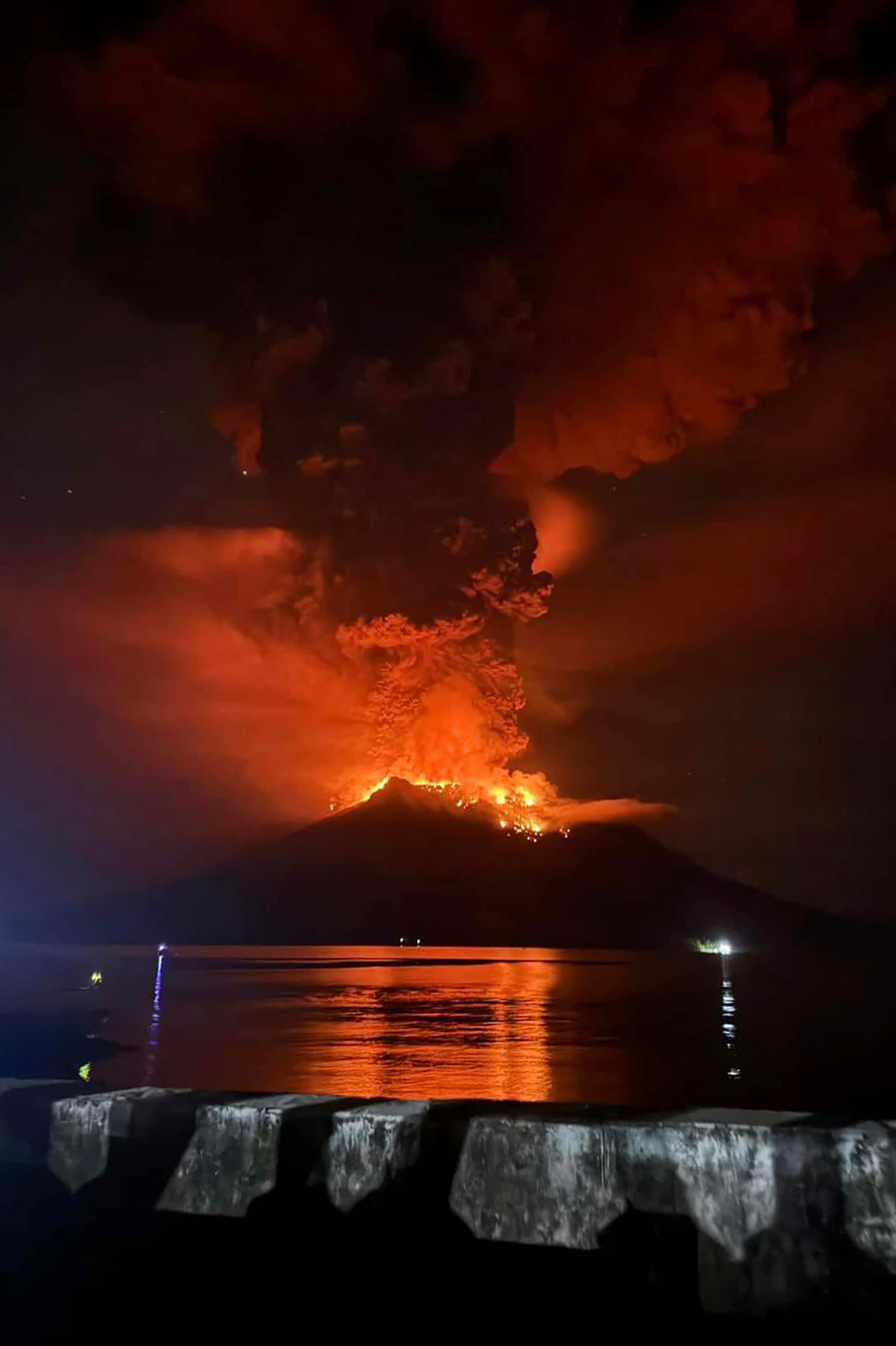Indonesians leave homes near erupting volcano and airport closes due to ash danger
Indonesian authorities closed an international airport and residents left homes near an erupting volcano due to spreading ash, falling rocks and the possibility of a tsunami

Your support helps us to tell the story
From reproductive rights to climate change to Big Tech, The Independent is on the ground when the story is developing. Whether it's investigating the financials of Elon Musk's pro-Trump PAC or producing our latest documentary, 'The A Word', which shines a light on the American women fighting for reproductive rights, we know how important it is to parse out the facts from the messaging.
At such a critical moment in US history, we need reporters on the ground. Your donation allows us to keep sending journalists to speak to both sides of the story.
The Independent is trusted by Americans across the entire political spectrum. And unlike many other quality news outlets, we choose not to lock Americans out of our reporting and analysis with paywalls. We believe quality journalism should be available to everyone, paid for by those who can afford it.
Your support makes all the difference.Indonesian authorities closed an airport and residents left homes near an erupting volcano Thursday due to the dangers of spreading ash, falling rocks, hot volcanic clouds and the possibility of a tsunami.
Mount Ruang on the northern side of Sulawesi Island had at least five large eruptions Wednesday, causing the Center for Volcanology and Geological Disaster Mitigation to issue its highest level alert, indicating an active eruption.
The crater emitted white-gray smoke continuously during the day Thursday, reaching more than 500 meters (1,640 feet ) above the peak.
People have been ordered to stay at least 6 kilometers (3.7 miles) from the 725-meter (2,378 foot) mountain. More than 11,000 people live in the affected area and were told to leave. At least 800 have done so.
An international airport in Manado city was temporarily closed Thursday as volcanic ash was spewed into the air.
“We have to close flight operations at Sam Ratulangi Airport due to the spread of volcanic ash, which could endanger flight safety,” said Ambar Suryoko, head of the regional airport authority.
The volcanology center noted the risks from the volcanic eruption include the possibility that part of the volcano could collapse into the sea and cause a tsunami. Tagulandang Island, east of the volcano, could be at risk if that occurred, and its residents were among those being told to evacuate.
“People who live in the Tagulandang Island area and are within a 6-kilometer radius must be immediately evacuated to a safe place outside the 6-kilometer radius, and especially those who live near the coast should be aware of the potential for incandescent rocks to erupt, hot clouds and tsunami waves that could be triggered by the collapse of a volcanic body into the sea,” Abdul Muhari, spokesperson of the National Disaster Mitigation Agency on Thursday.
The agency said residents will be relocated to Manado, the nearest city, on Sulawesi island, a journey of six hours by boat.
Volcanic eruptions have triggered past tsunamis in Indonesia, including an 1871 eruption at Mount Ruang and the 2018 eruption of the Anak Krakatau volcano. Parts of the Anak Krakatau mountain fell into the ocean, causing a tsunami along the coasts of Sumatra and Java islands, killing 430 people.
Indonesia, an archipelago of 270 million people, has 120 active volcanoes. It is prone to volcanic activity because it sits along the “Ring of Fire,” a horseshoe-shaped series of seismic fault lines around the Pacific Ocean.